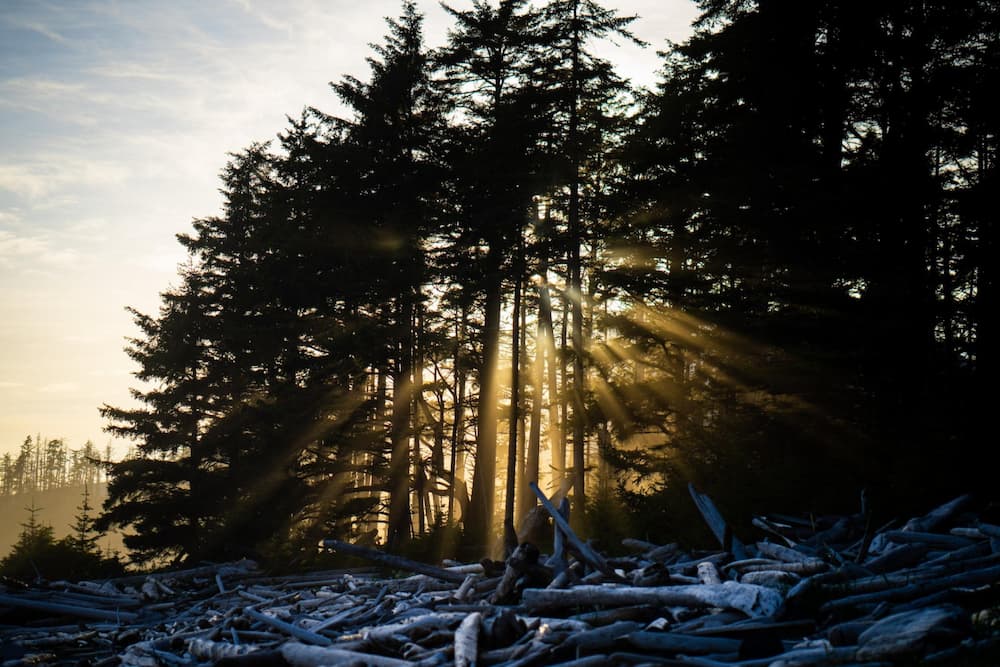Each of the ten warmest years ever recorded have all occurred in the last decade.
2023 was, by far, the planet’s warmest year yet.
Many scientists believe 2024 is already on track to be the warmest year ever, as April, May, and June were each the hottest of those respective months ever recorded.
Governments around the world claim they are invested in fighting environmental degradation, but efforts yielding significant impact are tough to find.
Nature-based solutions like regenerative farming and the revitalization of wetlands, when implemented, have proven effective at mitigating climate impacts and improving resiliency for communities.
Despite being cited in more than half of the climate pledges made by governments, funding for these types of projects has been sparse, particularly when compared to far more expensive and less efficient engineering projects.
The world’s ability to deliver on financing towards fighting environmental degradation while supporting nature has a long, long way to go. While rich countries have recently been scaling up climate finance by pouring tens of billions of dollars into assisting poorer countries in responding to environmental challenges, very little of this money is going into nature-based solutions, despite acknowledgement that they provide far more “bang for the buck.”
One study even showed that Indigenous communities and organizations receive less than one percent of climate funding meant to reduce deforestation.
The trend of “nature negative” finance flowing into harmful subsidies and investments continues unabated, while nature-based solutions receive less than one-third of what they need to meet UN climate goals.
We at Home Planet Fund are by-passing all of that, and instead are going straight to the original solution.
Central Asia
In Tajikistan, our Pamiri farmer partners are working in an area that is home to thousands of medicinal plants and herbs that are unique to the area. This is also a critically important habitat of snow leopards and wolves.
The Pamiri’s traditional farming practices are regenerative by definition, so this is bringing back medicinal plants and traditional strains of legumes, grains, and other foods. Their practices naturally support biodiversity, as these crops grow within and regenerate the thin, rocky soil common in a country that is 97% mountainous.
And when this work is done along riverbanks, the Pamiri are fortifying the rivers against increasing meltwater from the glaciers upstream.
We are supporting local communities in that region in their planting of traditional crops, preserving and sharing ancient seeds, strengthening their biodiversity and cultural heritage, and documenting Indigenous knowledge that has served their ancestors since time immemorial.
South Pacific
Across the South Pacific, Home Planet Fund is supporting the amplification of women’s voices about disaster preparedness and response, climate, and humanitarian action. Women from local communities now have a greater opportunity to present their recommendations on improved infrastructure – from roads to communications to food distribution and healthcare.
They are collecting the communities’ traditional knowledge and passing it down, generation to generation, woman to woman. We fund these women as they implement nature-based solutions that heal the landscape and mitigate future environmental impacts.
That work includes growing crops that are more resistant to drought and sudden downpours, restoring seagrass and planting mangrove forests along the coasts to prevent erosion and absorb increasingly large storm surges.
East Africa
In East Africa, our pastoralist partners’ way of life has a long history of proven contributions to biodiversity conservation, rangeland management, supporting local livelihoods, as well as its well known effectiveness in mitigating and adapting to intensifying environmental impacts.
Pastoralism is a true nature-based solution in and of itself. It creates and sustains biodiversity hotspots where it is practiced, and without it these landscapes and the life they support would not exist. The rangelands managed under pastoralist systems are biodiversity hotspots and home to the region’s greatest populations of wildlife.
Southeast Alaska
In Alaska, Home Planet Fund’s partners have created a food distribution system in Juneau, developed renewable energy projects that lower costs of living and reduce pollution, and are finding ways to protect the culturally important sockeye salmon. Other projects include developing oyster and otter products, increasing energy efficiency in homes, sharing mobile greenhouses, tracking wolves and ocean acidification, developing markets for wild blueberries, alerting people of shellfish poisoning, and hiring Native youth to work on habitat restoration projects.
Native culture and pride are flourishing again, along with economic opportunities for younger generations. Culturally based activities are being re-taught: songs, harvesting, canning, freezing, giving away food to elders, and respect for nature. All of this amounts to the re-integrating and building of relationships, and living in balance, which has always been their traditional way of living.
Our partners have been living nature based solutions before the term was invented, so we trust them implicitly. Because of this, all of their energy stays on their work for the planet – not in writing reports or holding meetings with us.
We support partners who work in remote, fragile, and sometimes even areas of conflict, where most others can’t or won’t.
Now you can be part of these solutions. Thanks to seed funding, when you support Home Planet Fund, 100% of all donations go directly to our partners on the front lines of the climate and biodiversity crises.
We are all in for the Earth.
